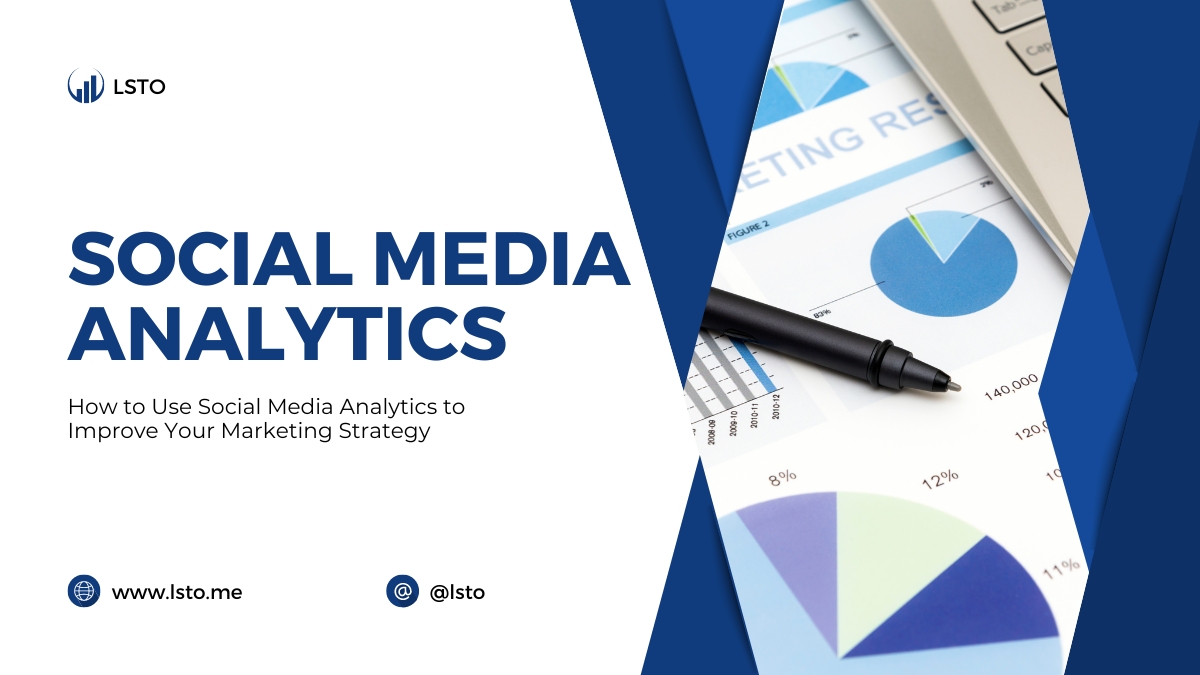
In today’s digital age, the use of social media analytics is essential for any successful marketing strategy. It provides valuable insights into customer behaviors and helps marketers adjust their strategies accordingly. Learning how to use social media analytics to improve your marketing strategy can help you stay ahead of your competition and increase your ROI. This article will provide a comprehensive guide on how to maximize the potential of social media analytics to make informed decisions about your marketing efforts.
1. Identify your goals
Social media marketing can be an incredibly effective tool for businesses and organizations. However, without a clear plan for what you want to achieve, it may be difficult to make the most of your efforts and resources. To maximize success, it is important to identify what goals you want to accomplish with your social media campaigns. Whether that includes increasing brand awareness or boosting sales, having specific objectives will help define your strategy and measure success.
Before you begin creating content and launching campaigns, use social media analytics tools like Google Analytics or Sprout Social to gain insight into your audience’s behaviors and interests. This data can help inform your goal-setting process by giving you an understanding of who exactly is seeing, interacting with, and responding positively (or negatively) to your posts.
2. Choose the right metrics to track
It is important to choose the right metrics to ensure that your goals are being met. Different social media platforms offer their analytics, which makes choosing the right ones for your goals even more important. To improve a marketing strategy, it is essential that businesses select the best metrics for their social media efforts as this will help them measure progress and understand how well their messaging resonates with customers.
The key metrics you should track depend on what type of content you’re sharing and the desired outcomes from campaign performance. For example, if you’re promoting a new product or service, engagement metrics like likes and shares can help understand customer interest. If you’re looking at brand awareness and reach, tracking follower growth may be more useful than other measures such as website clicks or conversions.
3. Monitor your progress
Social media analytics are essential tools for any business or organization looking to maximize its reach and improve its marketing strategy. With the help of these data-driven insights, marketers can track the progress of their content, discover trends in user engagement, and develop strategies to increase overall visibility.
Analytics provided by social media platforms can provide valuable information about what types of posts receive the most attention from your followers. You can use this data to tailor your content to meet audience needs and preferences, as well as see how different strategies perform over time. Additionally, monitoring interactions on popular posts allows you to gauge how resonant your message is with potential customers or constituents. This helps you create more meaningful connections with target audiences and refine future campaigns accordingly.
4. Identify patterns
When it comes to improving your marketing strategy, understanding the data is paramount. Social media analytics can tell you a lot about what kind of content is resonating with your audience and which are being overlooked. To get the most out of your social media analytic tools, you need to identify patterns in the data.
By looking for patterns in the analytics, you can better understand what types of content are getting the most engagement from users. This will help inform future marketing decisions and help ensure that you’re creating content that resonates with your target audience. You can also use this information to assess whether or not certain strategies are working and make adjustments where necessary. With this knowledge in hand, you’ll be able to create campaigns that effectively reach your target demographic and maximize ROI from every marketing effort.
5. Use the insights to make data-driven decisions
Data-driven decisions are essential for any successful marketing campaign. By using insights from social media analytics, businesses can fine-tune their marketing strategies and create content that resonates with their target audience. With so much competition in the digital space, it is increasingly important to leverage data and make decisions based on real information.
Using social media analytics to inform your decisions can help you understand more about your customer’s behavior and preferences. From this information, you can craft better campaigns that capture the attention of your target market and generate higher engagement levels. It also allows you to track how well certain tactics are working, which helps you refine your approach accordingly. Additionally, analyzing user sentiment gives insight into how people feel about your brand and what areas need improvement or further development. With this knowledge in hand, marketers can make informed decisions that yield better results over time.
6. Test and optimize
A successful social media marketing strategy is a must for any business hoping to make it in today’s world. To stand out from the crowd, businesses must use analytics to understand their customers and target their posts accordingly. A/B testing, or split-testing, provides an easy way to do this by allowing businesses to compare two versions of a post or campaign and see which one performs better.
By using A/B testing, marketers can optimize social media content for maximum reach and engagement. Through careful analysis of post-performance data, marketers can identify what types of content resonate best with their target audiences and tailor future posts accordingly. Additionally, they can measure how effective different ad campaigns are at driving traffic and conversions on the page — measurements that would be impossible without these tools.
7. Create a report
Creating a report that provides an overview of the progress and results of social media marketing efforts is essential for successful business growth. Social media analytics can provide valuable insight into customer engagement, brand awareness, and how effective campaigns are performing. By using this data to improve marketing strategies, businesses can gain a competitive edge by making informed decisions based on real-time data.
Reports should track key metrics such as website visits from social networks as well as post reach, clicks, and follower growth. They should also include qualitative measures such as sentiment analysis which assesses what customers are saying about your brand. All these factors help to establish an understanding of which content is resonating with customers and where in the sales funnel they may be dropping off.




